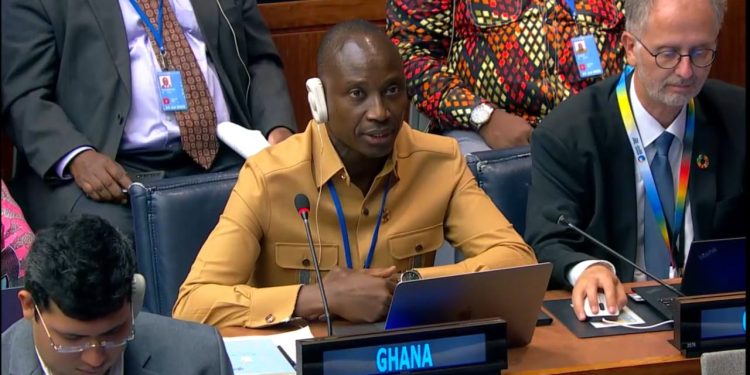Ghana Unveils Ambitious Labour Reforms to Achieve SDG 8 Target by 2030
Government Statistician, Dr. Alhassan Iddrisu, has reaffirmed Ghana’s commitment to tackling unemployment and promoting inclusive growth through the implementation of the ResetGhana Agenda, a coordinated national strategy aimed at expanding economic opportunities and safeguarding vulnerable populations.
Speaking at the High-Level Political Forum on Sustainable Development at the United Nations Headquarters in New York on Wednesday, July 16, Dr. Iddrisu outlined a suite of transformative initiatives under the ResetGhana Agenda, which are aligned with the country’s efforts to achieve Sustainable Development Goal 8 (SDG 8) – Decent Work and Economic Growth.
He noted that key pillars of the strategy include:
The 24-Hour Economy, designed to unlock employment opportunities beyond conventional working hours;
The Big Push Programme, a US$10 billion infrastructure investment drive aimed at stimulating growth and job creation;
The 1 Million Coders Initiative, which seeks to equip one million youth with digital and coding skills to thrive in a technology-driven economy;
The Gold Board, which focuses on formalising small-scale mining to enhance foreign exchange inflows and create decent jobs in the extractives sector.
Dr. Iddrisu further revealed that job creation has been explicitly integrated into the country’s monetary policy framework, a novel policy direction that reflects Ghana’s broader approach to inclusive development.
“Since 2022, Ghana has consistently produced quarterly labour statistics, improving the timeliness and relevance of labour market data,” he stated. “This year, we are launching a national survey on skills mismatches to ensure that training efforts are better aligned with the needs of the labour market.”
Underscoring the critical role of data in Ghana’s economic transformation agenda, Dr. Iddrisu stressed: “Our compass for this transformation is data. If we are serious about SDG 8, data must be treated as core infrastructure, essential to recovery, not incidental to it.”
He also called for urgent and sustained global action in the final five years leading to the 2030 SDG deadline. “Let us act, not just commit, in these final five years. The future of work and the dignity of workers depend on this action,” he said.
Dr. Iddrisu concluded by noting that Ghana has prioritised five high-impact targets within its SDG framework, with decent work and inclusive growth at the centre, adding that “the results so far are encouraging.”








